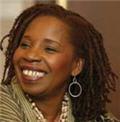-
“[King Uzziah] set himself to seek God in the days of Zechariah, who instructed him in the fear of God, and as long as he sought the Lord, God made him prosper. . . . But when he was strong, he grew proud, to his destruction. For he was unfaithful to the Lord his God and entered the temple of the Lord to burn incense on the altar of incense” (2 Chronicles 26:5, 16).
About 10 years ago, I thought I had my career all figured out. I would be an acclaimed academician, teaching, writing books and papers, publishing them in journals and presenting them at conferences. I called myself a scholar and defined that that would mean always engaging students and writing papers that would give attention to African American issues. All this was to put my name on the map and to contribute to the exultation of African Americans. The plan was air tight but not right because I hadn’t sought the Lord’s direction. After accomplishing most of the plan, it fell apart because I fell apart, buckling under the weight of self-determination.
Self-determination: “[T]he ability or right to make your own decisions without interference from others” (Encarta Dictionary) or commonly defined during Kwanzaa “to define ourselves, name ourselves, create for ourselves and speak for ourselves.” This is kujichagulia, the second principle of Kwanzaa. And though this is the fifth day of Kwanzaa, deconstructing self-determination is important to understand the overall danger of Kwanzaa for Christians.
1. Self, based on self, cannot be your focus. “None is righteous, no, not one” (Romans 3:10). Understand that when you of your own power decide for yourself who you are and where you’re going, you will end up bankrupt every time. Christians are not meant to define themselves or their destiny. When we do, our lives fall short of what God intends; we are incapable of bringing forth good success.
2. It is always the job of the creator to name and define the creature. “You turn things upside down! Shall the potter be regarded as the clay, that the thing made should say of its maker, ‘He did not make me’; or the thing formed say of him who formed it, ‘He has no understanding’” (Isaiah 29:16)? If we decide apart from God who we are and where we are going, we are regarding God, the potter, as the clay, disregarding His authority in our lives to name and define us and tell us what to create and say on whoever’s behalf.
3. Definitions determine destiny. “Death and life are in the power of the tongue, and those who love it will eat its fruits” Proverbs 18:21. What we speak (life-defeating or life-affirming words) will be our focus and we will receive the fruit (consequences) of what we speak. So we can either become what we say we are based upon our own notions or we can become who God says we are based on His notions. Our notions are always life-defeating; when we act on our own accord, we are following our old life, one that was without Jesus Christ. Once we accepted Jesus Christ as savior, we were given a new life so our notions must be His notions (2 Corinthians 5:17); He is the one who defines us and, thus, determines our destiny.
King Uzziah had a good destiny when he allowed God to define him and followed his God-given destiny. The minute he was self-determined and tried to move out of his God-determined place as king and act like a priest, he became weak; God struck him with leprosy and he died with it. He no longer ruled and lived alone until he died. Self-determination always has dire consequences.
No Christian should be in the business of naming or defining herself, and any creativity and speaking forth should be to develop Christ’s kingdom and not the kingdom of self, be it an individual self or a black collective self. Any movement apart from the direction of the Holy Spirit is self driven, flesh driven, and has no part in the kingdom of God.
Copyright 2009 by Rhonda J. Smith



